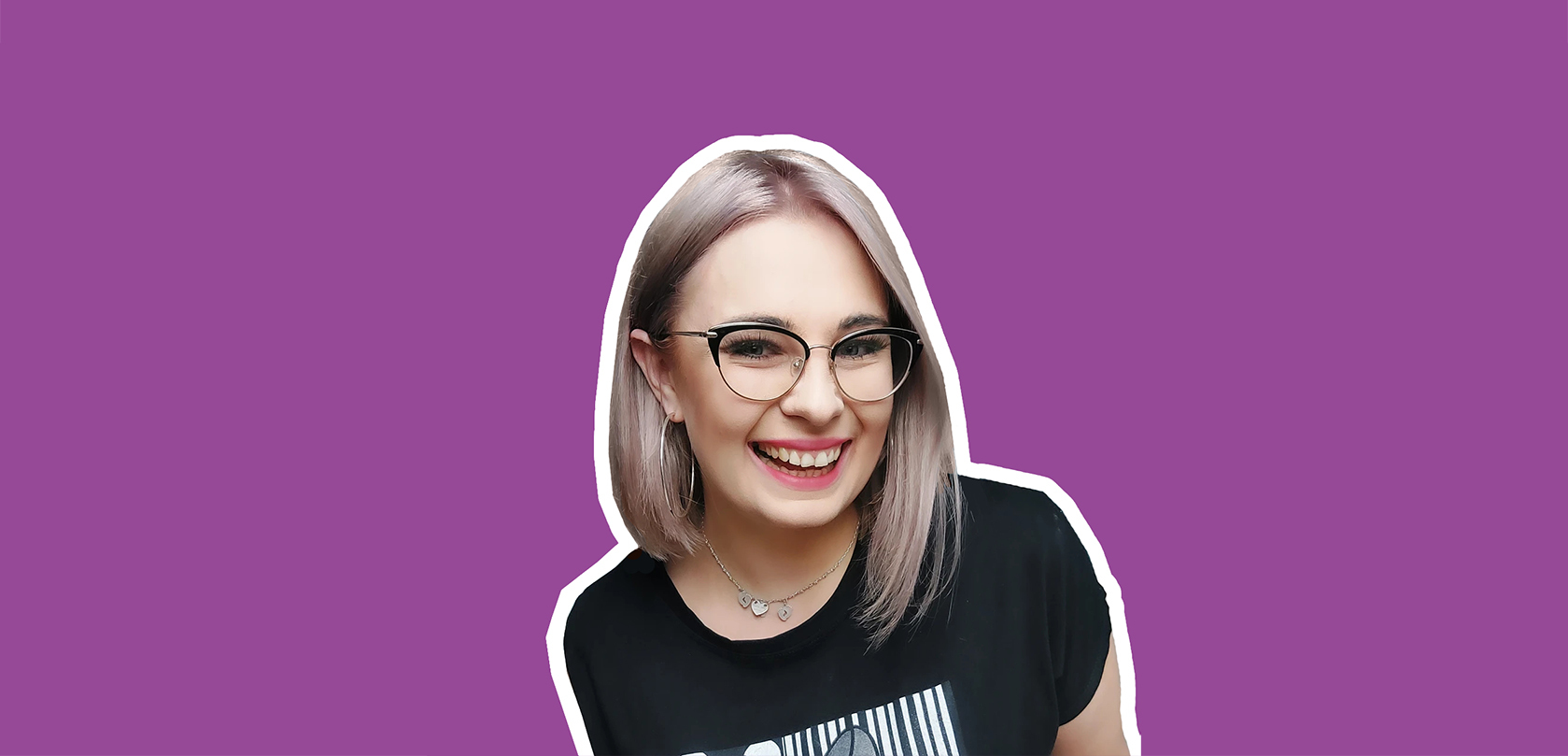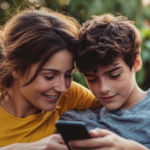
„Ważne jest, by nie wywierać na dzieciach presji i nie powtarzać nieustannie, że są rodzeństwem, więc muszą się kochać”. O toksycznych relacjach między rodzeństwem mówi psycholożka Marlena Bronhard-Puchała
Klaudia Kierzkowska: Jakie są oznaki toksycznej relacji między rodzeństwem? Co powinno wzbudzić niepokój rodziców?
Marlena Bronhard-Puchała: Oznaki toksycznej relacji między rodzeństwem praktycznie nie różnią się od oznak innych toksycznych relacji np. między rówieśnikami czy dzieckiem a rodzicem. Jeżeli jakaś relacja nie jest dobra lub chociaż „neutralna”, to generuje dyskomfort i/lub wywołuje cierpienie przynajmniej jednej ze stron. Toksyczne relacje nie wzmacniają, nie dodają energii, a czasem nawet sprawiają, że trudno być sobą. Zatem, jeżeli relacja pomiędzy dziećmi nie jest dla nich dobra i budująca, a wręcz przeciwnie, widać, że przynajmniej dla jednego z nich jest niekomfortowa czy krzywdząca, zdecydowanie trzeba pochylić się nad tematem. To poważny problem, obok którego nie można przejść obojętnie.
Co jest najczęstszą przyczyną toksycznej relacji między rodzeństwem?
Przyczyn toksycznych relacji między rodzeństwem, podobnie z resztą jak innych toksycznych relacji, może być wiele. Do najczęstszych z całą pewnością możemy zaliczyć: zazdrość, nagromadzenie się nierozwiązanych konfliktów, zarzutów i niewysłuchanych argumentów, ale też próbę dostosowania do jakichś ról społecznych czy konkretnych zachowań.
Oczywiście nie można też zapomnieć o tym, że jedną z bardzo częstych przyczyn toksycznych relacji, mogą być psychopatyczne cechy osobowości jednej ze stron tej relacji.
Po czym poznać psychopatyczne cechy osobowości?
Jedną z charakterystycznych cech psychopatycznych jest niezdolność do odczuwania emocji, co powinno zwrócić szczególną uwagę rodzica. Podobnie z resztą jak brak empatii. Już naprawdę małe dziecko, widząc smutek rodzica, podejmuje próby pocieszenia go np. poprzez przytulenie, podanie ulubionego pluszaka – to właśnie są początki rozwoju empatii. Powinniśmy dokładnie przyjrzeć się zachowaniu dziecka – widoczna w nim agresja, zwłaszcza mająca sposób intencjonalny, przemyślany i zaplanowany, powinna wzbudzić niepokój. Oczywiście nie każde agresywne zachowanie dziecka oznacza, że występują u niego cechy psychopatyczne. Dobrze jednak obserwować swoje dziecko, również, a właściwie zwłaszcza po to, by pomóc mu w radzeniu sobie z emocjami i trudnymi sytuacjami, a także, by uczyć je akceptowalnych społecznie zachowań.
Zastanawiam się, czy zbyt duża różnica wieku ma wpływ na znaczne pogorszenie takiej relacji?
Nie jest powiedziane, że im większa różnica wieku, tym większe ryzyko toksycznej relacji. Toksyczne relacje mogą wystąpić między rodzeństwem z każdą różnicą wieku, nawet u bliźniąt. Prawdą jest jednak, że czasami trudniej jest zbudować relację dzieciom, między którymi jest duża różnica wieku. Dzieje się tak, chociażby dlatego, że zainteresowania czy problemy poszczególnych grup wiekowych różnią się od siebie. Inne może być również postrzeganie rzeczywistości. Nie oznacza to jednak, że zbudowanie silnej i serdecznej relacji między rodzeństwem z dużą różnicą wieku jest niemożliwe, czasami po prostu wymaga nieco więcej wysiłku, zaangażowania i chęci.
Jedną z przyczyn może być konflikt między rodzicami lub, co gorsza rozwód, kiedy to jedno dziecko broni mamy, a drugie taty.
Rozwód rodziców to bez wątpienia wyjątkowo trudna dla dzieci sytuacja. I rzeczywiście, konflikt między rodzicami może niekorzystnie wpłynąć na relacje rodzeństwa, zwłaszcza jeżeli jedno z dzieci stanie po stronie jednego, a drugie po stronie drugiego rodzica.
Wszystko oczywiście uzależnione jest od wieku dzieci, tego, jak ta relacja wyglądała wcześniej, a także od wielu innych czynników. Właśnie m.in. dlatego, że konflikty i rozwodowe wojny rodziców mogą odbić się również na relacjach między dziećmi, tak ważne jest, by dorośli nigdy nie angażowali dzieci w swoje konflikty, nie manipulowali nimi, ani nie wykorzystywali ich do własnych celów. Angażowanie dzieci w problemy i nieporozumienia rodziców to jedno z bardziej krzywdzących zachowań.
Czy fakt, że sami mieliśmy ze swoim rodzeństwem toksyczną relację, może sprawić, że nie będziemy umieli wychować rodzeństwa w zgodzie, miłości i szacunku do siebie?
Może, ale nie musi. Nasze doświadczenia z dzieciństwa znacząco wpływają na nasze dalsze życie, ale nie oznacza to, że są jego jedyną definicją i wzorcem, który musimy powielać. Kluczową rolę odgrywa tutaj praca nas sobą, przepracowanie tego, co było trudne – najlepiej pod okiem specjalisty. Terapia własna pozwoli spojrzeć na swoje doświadczenia z innej perspektywy, zrozumieć przyczyny pewnych zachowań czy reakcji (zarówno swoich, jak i innych), a być może nawet doprowadzi do przebaczenia tym, którzy wyrządzili nam krzywdę. To niełatwa droga, podczas której potrzeba doświadczonego przewodnika (terapeuty), który wskaże właściwy kierunek, podpowie jak można poradzić sobie z trudnymi doświadczeniami przeszłości, zaproponuje odpowiednio dobrane metody i techniki pracy.
Relacje między rodzeństwem mogą być toksyczne, ale równie dobrze mogą „tylko„ trudne. Jaka jest między nimi różnica?
Trudna relacja to taka, która sprawia, że czujemy się gorsi, mniej wartościowi, nieatrakcyjni, czasami mniej inteligentni czy nieciekawi. Przebywanie z osobą, z którą mamy taką relację sprawia, że nie mamy ochoty na podejmowanie działań, przygasamy, a jedyne, czego chcemy, to zaszyć się w bezpiecznym miejscu i poczekać, aż wszystko minie. Takie relacje są naprawdę bardzo szkodliwe i wyniszczające.
Natomiast relacja toksyczna to taka trucizna, która wyniszcza nas dzień po dniu. Ludzie w toksycznych relacjach nie rozwiązują problemów, czy konfliktów poprzez rozmowę. Jedna z osób stopniowo sączy w tę drugą relację trujący jad, który może przybrać naprawdę rożne formy, np. obrażania się, wybuchów gniewu, poniżania, manipulacji, podejrzliwości, nadmiernej kontroli, szantażu, nieszczerości. To relacja, w której jedna z osób jest uzależniana od swojego oprawcy, manipulowana i wykorzystywana, by mogła spełniać oczekiwania i zachcianki tej drugiej osoby. Uwolnienie się z takiej relacji jest naprawdę trudne.
Jak zatem pomóc dzieciom odbudować taką relację?
W pierwszej kolejności należy znaleźć przyczynę, która spowodowała, że te relacje są właśnie takie i tę przyczynę wyeliminować, przepracować ją. Kolejnym ważnym krokiem będzie stworzenie rodzeństwu okazji do „poznania się na nowo”, zachęcanie do wspólnego spędzania czasu, dawanie im wspólnych zadań.
Nie można jednak przy tym wszystkim zapominać o tym, że każde z dzieci jest wyjątkowe i należy pozwolić mu na tę indywidualność, na bycie sobą. Bardzo ważne jest też, by nie wywierać na dzieciach presji i nie powtarzać nieustannie, że są rodzeństwem i mają się kochać – tej relacji trzeba dać czas. Nie można zapomnieć o tym, by uczyć dzieci szanowania granic drugiej osoby, jak i stawiania granic. Warto również pokazać jak konstruktywnie rozwiązywać spory i problemy.
Często chyba znalezienie przyczyn trudności w relacjach między rodzeństwem i przepracowywanie jest trudne.
W takich sytuacjach warto skorzystać z pomocy specjalisty, który głębiej przyjrzy się problemowi, udzieli wskazówek i pomoże odnaleźć drogę do ewentualnego naprawienia relacji między rodzeństwem. Musimy jednak pamiętać, że w zależności od wielu czynników, może być naprawdę trudno naprawić taką relację. Ze względu na wyrządzone krzywdy, przeżytą traumę jednej ze stron, może być to po prostu niemożliwe.
Co rodzice mogą zrobić, by jeszcze bardziej nie komplikować trudnej relacji między dziećmi?
Rodzice w żaden sposób nie powinni faworyzować jednego z dzieci.
Oczywiście wiadomo, że każde dziecko jest inne i posiada cechy, które rodzic mniej lub bardziej sobie ceni, ale nawet mimo tego, jednego dziecka nie można stawiać ponad. Trzeba pamiętać, że każde z dzieci jest wyjątkowe. Rodzeństwa nie można również ze sobą porównywać, ani stawiać jednego za wzór do naśladowania. Bardzo ważnym jest również, by nie wzbudzać między rodzeństwem niepotrzebnej zazdrości, nie zachęcać do niezdrowej rywalizacji. Nie mniej ważne jest, by nie obarczać jednego dziecka (najczęściej starszego) odpowiedzialnością za to drugie, nie zmuszać do ustępowania czy rezygnacji z ważnych dla niego rzeczy na korzyść rodzeństwa. Jeżeli nie chcemy komplikować relacji między naszymi dziećmi, warto pamiętać także o tym, by w miarę możliwości nie wtrącać się w ich konflikty, a już na pewno nie opowiadać się po żadnej ze stron.
Czy toksyczne rodzeństwo może się naprawdę zacząć lubić i szanować, czy poprawa będzie oznaczała jedynie przyzwoity kontakt?
Trudno jednoznacznie odpowiedzieć na to pytanie, ponieważ każde relacja jest inna. Każdy z nas jest inny, jeden może znieść i wybaczyć więcej, a drugi mniej. Oczywiście nie oznacza to, że z taką trudną czy toksyczną relacją nie należy nic robić, wręcz przeciwnie. Nie tylko warto, ale zdecydowanie trzeba taką relację przepracować. Jednak to, jak ta relacja będzie wyglądać później, czy będzie ona pełna szacunku, będzie jedynie przyzwoita czy też zostanie zerwana, zależy do wielu czynników, np. od tego, czy trudności tej relacji zostaną przepracowane podczas terapii, czy ofiara tej toksycznej relacji będzie w stanie i czy będzie chciała przebaczyć oprawcy, itd. Takich czynników jest całe mnóstwo i potrafią być one naprawdę bardzo indywidualne.
Często zgłaszają się do pani gabinetu rodzice, którzy zmagają się z takim problemem?
W swojej pracy spotykam się z trudnościami w relacjach między rodzeństwem w różnym wieku, rodzice bardzo często szukają u mnie pomocy i wsparcia w tej kwestii. Muszę jednak przyznać, że zawsze były to relacje „tylko trudne”, nad którymi wspólnie pracowaliśmy. W swoim gabinecie nigdy nie spotkałam się z taką rzeczywiście toksyczną relacją.
Marlena Bronhard-Puchała – psycholog dziecięca i pedagog. W przestrzeni internetowej dzieli się wiedzą, opowiada o rozwoju dziecka, pomaga zrozumieć umysł młodego człowieka i wspiera w budowaniu empatycznych relacji. Autorka strony internetowej www.psychologove.pl, artykułów i e-booków dla rodziców, a także bajek-pomagajek dla dzieci. Prywatnie mama dwóch córek, uwielbiająca sprawdzać jak teorie z psychologicznych podręczników sprawdzają się w rodzicielskiej codzienności






































